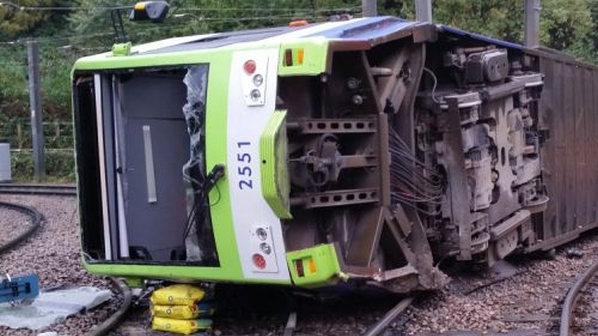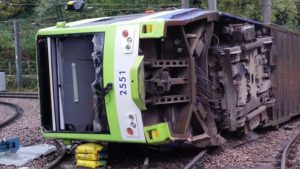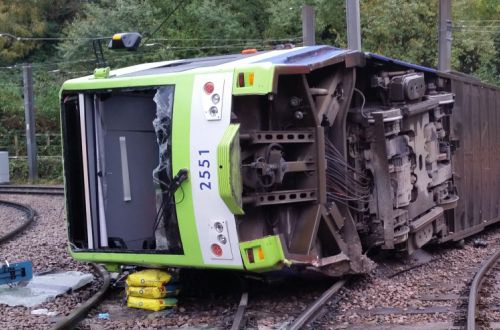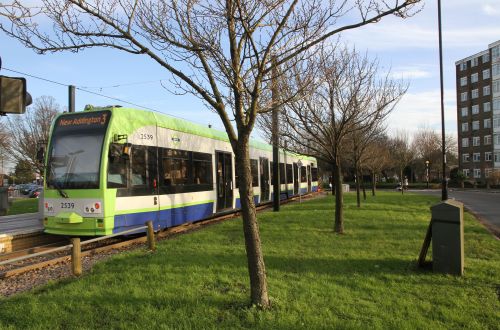TRANSPORT for London (TfL) and Tram Operations Ltd (TOL) have been fined a total of £14m following an accident on the light rail network in Croydon that killed seven people on November 9 2016.
An LRV was travelling in poor weather and at three times the speed permitted before it overturned approaching a junction at Sandilands. Of the 69 passengers on the LRV, seven were killed, 19 were seriously injured and only one escaped injury completely.
TfL and TOL, a subsidiary of FirstGroup, both pleaded guilty at the Central Criminal Court in London to offences under the Health and Safety at Work Act 1974 following an investigation and prosecution by industry safety regulator the Office of Rail and Road (ORR).
Both companies pleaded guilty to charges that they had failed to do everything that was reasonably practicable to ensure the safety of passengers on the light rail network. Neither company had performed a suitable or sufficient assessment of the risks of a high-speed derailment on the network.
TfL, which owns and maintains the infrastructure of the Croydon light rail network, was fined a total of £10m. TOL, which operates the network, was fined a total of £4m.
In June, the driver of the LRV was found not guilty of failing to take reasonable care of his passengers. Mr Alfred Dorris was acquitted of health and safety offences by a jury after less than two hours of deliberation.
Since the accident, new safety measures and systems have been implemented in line with recommendations made by the Rail Accident Investigation Branch (RAIB) in its report on the derailment, under the supervision of ORR.
These include new systems to prevent LRVs exceeding the speed limit when traversing tight curves, improvements in managing driver attentiveness and more warning signs at the Sandilands curve and other high-risk locations on the network.
The light rail sector has also created a new body, the Light Rail Safety and Standards Board (LRSSB), whose remit includes improving the sector’s understanding of risk and setting recognised industry standards.
“When faced with the evidence of their failure over a number of years, both TfL and TOL accepted that they had not done everything that was reasonably practicable to ensure the safety of their passengers, with terrible consequences on the early morning of November 9 2016,” says Mr Ian Prosser, chief inspector of railways at ORR.
“We must never forget the tragedy of that day, and must strive to learn all of its lessons so there can be no repetition,” Prosser said. “The judge’s remarks and the sentences imposed underline to the corporate defendants and the whole industry that their first responsibility is to ensure the safety of their passengers and staff.
“We welcome the improvements made to the network since the incident. We will continue to scrutinise this vital industry and hold operators to account if they fall short.”




